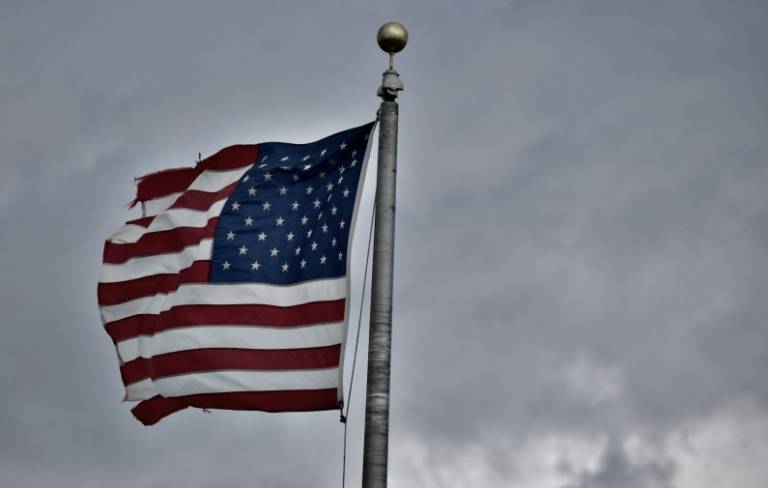Biden and Human Rights: Falling Short of International Consensus
11 January 2024
Gauging Biden's alignment with global human rights norms. A commentary by Brian Dooley (GGI Visiting Scholar) and Tom Pegram (GGI Director).

It’s three years this week since Joe Biden became president. In the last months of the Donald Trump administration, we previewed what a Biden White House might mean for U.S. commitment to the international human rights community.
We feared that while Biden would be an improvement on Trump, a deep-rooted, unhelpful sense of American self-regard would remain. “Washington will need to wean itself off the intoxicating idea of its exceptional status in world affairs”, we said.
It hasn’t. This brief essay is not a judgment on how well or poorly Biden’s administration has fulfilled its promise to put human rights “at the heart” of its foreign policy, but an assessment of whether it has moved any closer to the centre of an international consensus on human rights norms.
While Biden reversed Trump’s abandonment of the UN Human Rights Council, and ditched the absurd Commission on Unalienable Rights, the US seem no nearer to fully joining the world’s mainstream human rights policies, including The Convention on the Elimination of All Forms of Discrimination Against Women, The Convention of the Rights of the Child, The International Criminal Court, and it continues to use the death penalty.
Although the US has ratified the International Covenant on Civil and Political Rights, last month a UN committee issued a highly critical report on its lack of compliance with the treaty.
Unlike most other countries, the US still refuses to establish a National Human Rights Institution (NHRI), and the Biden administration even appears to be willing to trade away longstanding asylum protections in order to pass unrelated aid legislation.
This month, US Secretary of State Antony Blinken’s casual dismissal of the International Court of Justice case on genocide brought by South Africa against Israel as “a distraction” not only disagreed with the case brought, but appeared fundamentally disrespectful toward the process.
Such actions have undercut the credibility of the Biden administration’s commitment to the so-called “rules-based international order”, affirmed with much fanfare by Blinken in 2022 as a bulwark against “the most serious long-term challenge to the international order”, namely China. In laying out this agenda, Blinken was keen to emphasise “[t]hat there’s another area of alignment we share with our allies and partners: human rights”. Recent events have done little to reassure US allies and partners that this is the case.
There is a peculiar paradox at the heart of this American aversion to egalitarian global governance structures. America wants to go it alone, but at the same time also wants to be in charge. And this self-importance isn’t just an instinct of American conservatives.
When he was running for president, Biden wrote that his foreign policy would put “the United States back at the head of the table”. Herein lies the problem, when American liberals believe that the world wants Washington at the head of its table. Too often US officials boast that America should be captaining a global team when in reality it barely makes the substitutes’ bench.
In 1988, when Madeleine Albright was US Secretary of State in the Clinton administration, she declared that “We stand tall and we see further than other countries into the future”, and some American liberals still appear convinced that what the rest of the (myopic) world most craves is American leadership.
American liberal foreign policy thinking hasn’t evolved much since. In a September 2023 speech, Antony Blinken emphasised America’s “leadership around the world”, adding magnanimously that “In this pivotal time, America’s global leadership is not a burden”. It would appear that US foreign policy elite have taken to heart the title of prominent liberal academic G. John Ikenberry’s book, Liberal Leviathan, but missed the message on pursuing an “enlightened strategy” when it comes to renegotiating US relations with the rest of the world.
The following month Biden declared “American leadership is what holds the world together” and that the US must remain “a beacon to the world”.
Biden continues to insist, as other American liberals before him have insisted, that the US is “the one indispensable nation”. It’s hard to know exactly what that means, but the clear implication is that all other nations – adversaries and allies alike – are ultimately dispensable to the interests of American foreign policy. What does this mean for Afghanistan? Or Ukraine or Taiwan?
Washington is regarded as an increasingly unreliable international partner – apart from its failure over many decades to join the mainstream consensus on human rights, international pledges made by one US presidency are now likely to reversed by the next.
When Deputy US Ambassador to the UN Robert Wood raised his hand on December 8, he not only exercised America’s lone veto on a resolution at the UN calling for an immediate humanitarian ceasefire in Gaza, which was backed by over 90 countries. He also messaged a US intention to remain an international outlier on rights, further signalled the US as an unreliable ally to the mainstream human rights movement, and waved goodbye to the White House’s claim to "demonstrate America’s global leadership on the world stage”.
Another Trump administration will no doubt be a disaster for the international rights landscape. But if Biden wins, American liberalism needs to give itself a reality check, ditch the dated, inflated rhetoric, reassess Washington’s place in the world, and focus on joining the mainstream human rights movement rather than boasting that it leads it.
 Close
Close


